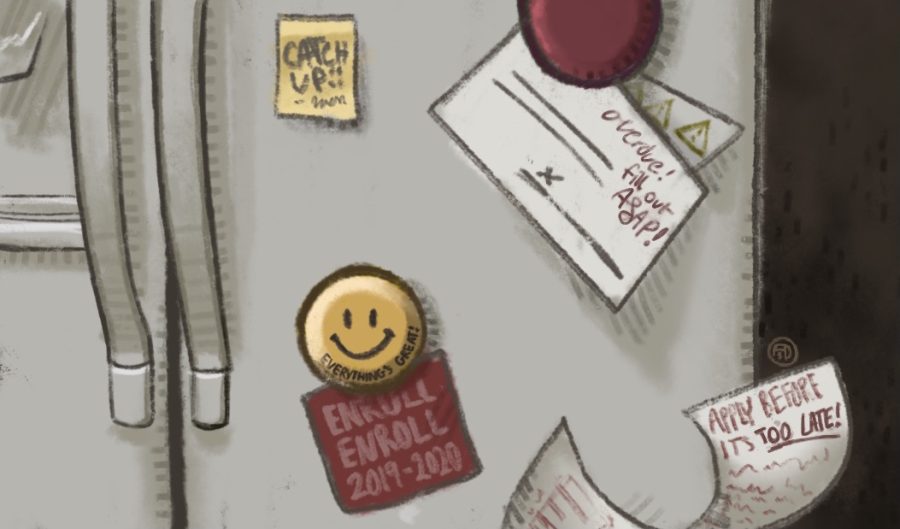Americans are feeling behind
A new NPR-Harvard poll shows that most Americans are still feeling the effects of the pandemic, in more ways than one
November 10, 2021
The effects of COVID-19 have reached every corner of America, and such effects are not exclusively in the health field. The pandemic has triggered a domino effect of crises that affect Americans in more ways than one. Over the course of the pandemic, many related national polls have been taken by Americans and pandemic stats have been monitored.
A new national poll by National Public Radio, the Robert Wood Johnson Foundation and the Harvard T.H. Chan School of Public Health examined the most serious problems facing households across America from August to September of 2021. The survey conducted focused on issues such as finances, healthcare, racial/ethnic discrimination, education, caregiving, employment and general well-being.
The studies first found that 38% of households across the country report facing serious financial problems in the past few months. Minority families bore a disproportionate share of the pandemics’ socio-economic impact, with more than 50% having serious financial problems, while just 29% of white households did. This disparity was noticeable in other poll findings as well.
Furthermore, the poll demonstrated a sharp income divide, with 59% of those with annual incomes below $50,000 report facing serious financial problems in the last few months, compared with 18% of households with annual incomes of $50,000 or more. In addition to the income divide, 19% of U.S. households reported losing all of their savings during the pandemic, with no savings to fall back on. Among Black, Latino and Native American families, over a quarter of households report they completely depleted their savings.
Not only did households report financial issues, but 27% of renters nationally reported serious problems paying their rent in recent months. Of Chicago, Houston, Los Angeles and New York City, the poll found that Houston’s rent crisis was the worst; 53% of renters in Houston reported trouble paying their rent.
The repercussions of the COVID-19 outbreak have been evident throughout the education system. Two-thirds of households with children in grades K-12 last school year say their children fell behind in their learning due to the pandemic, including 36% of all aforementioned households reporting their children fell behind a lot.
“I fell behind a lot,” senior at Rancocas Valley Regional High School Paul Zazzo said. “The social isolation mixed with the virtual learning made it hard to find much motivation to do school work.”
Parents have had to watch their children struggle, and many worry that the effects of the pandemic on education will carry into this school year. In anticipation for the upcoming school year, 70% of households whose children fell behind last school year believe it would be difficult for their children to catch up on education losses.
The poll detailed another aspect in which social-well being has declined. A quarter of Asian American adults, 22% of Native American adults and 21% of Black adults say that in the past few months they have feared someone might threaten or physically attack them or members of their household because of their race/ethnicity. To put that into context, a recent report from the Federal Bureau of Investigation showed that attacks on minorities are at their highest level in 12 years.
The pandemic continues to impact Americans, and the NPR poll demonstrates the related struggles of everyday citizens. With a new variant of COVID-19 on the rise, new obstacles present themselves to Americans and existing ones are swelled.







